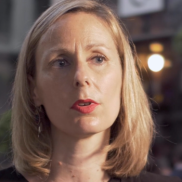

Finance professions
Trader: missions, skills, training, salary and career development
Technological advances and the increased volatility of the financial markets have transformed the profession of trader. Responsible for trading and managing financial assets, this professional uses cutting-edge tools to optimise the profitability of investments in a dynamic and constantly changing environment.
Description of the job of Trader
A trader, also known as a market operator, is a key player in the financial markets, responsible for buying and selling financial products such as shares, currencies and derivatives. Traders speculate on price fluctuations in order to make financial gains. Trades may be carried out for their own account or on behalf of a financial institution.
Traders use sophisticated trading tools and analyse market data to take positions in various financial instruments. They often work with brokers and dealers to execute their orders and may work in very dynamic trading rooms. Traders use trading platforms such as MetaTrader or ProRealTime to monitor quotes in real time and execute trades.
What is the role and mission of a trader?
Managing investment portfolios
Traders manage investment portfolios by buying and selling shares, currencies and derivatives. They must assess risks and opportunities in order to optimise returns. They are also responsible for risk management and asset diversification to reduce exposure to market volatility.
Financial market analysis
Traders carry out fundamental and technical analysis of the financial markets to anticipate price movements. He uses technical indicators such as moving averages, pivot points and Bollinger bands to identify market trends and optimal entry and exit points .
Executing stock market transactions
Traders execute stock market transactions using sophisticated trading software . They must be able to make quick decisions and manage open positions to maximise profits. Managing leverage and margin calls is also an essential part of the job.
What skills do you need to be a good trader?
Professional skills:
- Mastery of financial markets and derivatives.
- Expertise in technical and fundamentalanalysis.
- Knowledge of trading platforms and risk management tools.
- Portfolio and moneymanagement skills.
Personal skills:
- Ability to make quick decisions and manage stress.
- Analytical mind and ability to interpret market data.
- Rigour and discipline in executing trading strategies.
- Communication and collaboration with other traders and analysts.
What are the current challenges facing traders?
Digitalisation and digital transformation
Technological developments are forcing traders to adapt to new trading platforms and automatic trading algorithms. Digitising trading processes is a major challenge.
Financial risk and cyber security management
With cyber attacks on the increase, securing financial data and implementing robust internal control systems are priorities.
Regulatory compliance
Compliance with the regulations of financial market authorities (such as the AMF or CySEC) requires constant monitoring and ongoing adaptation of practices.
How to become a trader
Education and training
To become a trader, you generally need a 5-year degree in finance, economics, mathematics or business school. The following courses are particularly popular:
- Master's degree in market finance.
- MBA in finance
- Engineering degree in quantitative finance.
EM Normandie offers courses tailored to this profession, in particular the MSc Banking, Finance and FinTech. This course provides the necessary skills in risk management, financial analysis and trading strategy, offering comprehensive preparation for becoming a successful trader.
Specific trading courses and certifications such as the CFA can also be an asset.
Professional experience
Significant experience in positions of responsibility in finance or trading is essential. Traineeships in trading rooms or financial analyst positions are key steps towards becoming a trader.
What are the career prospects for a trader?
- Progression to Head of Trading or Portfolio Manager.
- Opportunities in major banks, investment funds or hedge funds.
- Possibility of becoming a financial consultant or setting up your own trading fund.
- Transition to Finance Director or Chief Investment Officer.
What does a trader earn?
A trader's salary varies according to experience, the size of the company and the sector of activity:
- Beginner: Gross annual salary (approx.): €40,000 - €70,000
- 2-5 years' experience: Gross annual salary (approx.): €70,000 - €150,000
- 5+ years' experience: Gross annual salary (approx.): €150,000 and more (with significant bonuses).
What does a trader do?
A variety of employers:
Traders can work for a variety of organisations, including:
- Major banks and financial institutions.
- Investment funds and hedge funds.
- Brokerage firms and forex brokers.
- Assetmanagement companies.
The nature of their work may vary slightly depending on where they work and the size of the company, encompassing responsibilities ranging from managing small portfolios to coordinating complex trading strategies involving several markets.
Main areas:
A Trader operates in a number of areas, including:
- Equity markets: Management of equity and stock index transactions.
- Forex trading: Speculation in currency pairs and management of forex trades.
- Crypto-currencies: Trading bitcoin and other crypto-assets.
- Commodities: Trading in futures contracts and CFDs.
These varied sectors offer many opportunities for traders, depending on their skills and professional interests, allowing them to specialise in areas such as algorithmic trading, risk management and optimising trading strategies.
In summary
Trading is essential to ensuring the liquidity and stability of the financial markets. As the central pillar of trading activities, the Trader plays a crucial role in stock market speculation and investment management. Their ability to analyse markets, execute transactions and manage risk is essential to guaranteeing financial gains and investor satisfaction.
Programmes
See all programmesTestimonies
See all testimonies-
 Arthur Streichenberger
Arthur StreichenbergerYouth and Dynamism at Air France: Arthur's work-study track experience
Arthur Streichenberger, a work-study track student at Air France in the post of management controller, expresses his pride and admiration for his contribution to the pilot training programme sector.
-
 Anaïs Trentesaux
Anaïs TrentesauxDirector of Management Control at Courir
Anaïs Trentesaux graduated in 1999 and rose through the ranks to become Director of Management Control at Courir.
-
 Julien Clérot
Julien ClérotCo-founder of Jules et Jean
Find out more about Julien, co-founder of Jules et Jean, a fresh local produce market for consumers in the Manche department.
-
 Amaury Boelle
Amaury BoelleCo-founder of Kickston, investment bank
A 2014 graduate, Amaury set up his first company with a classmate in the final year of his Bachelor's degree. Today, he is in his tenth year of entrepreneurship. He sees each business launch as an apprenticeship.